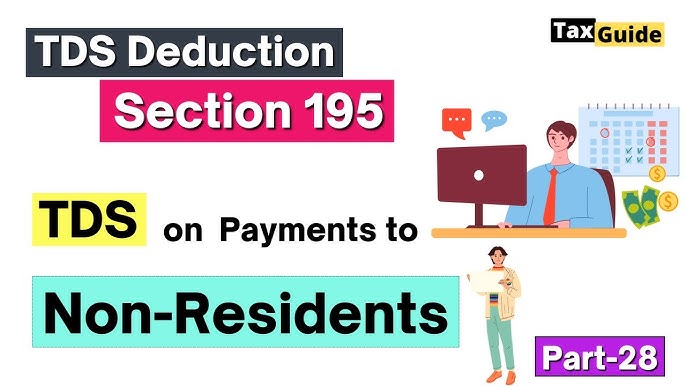
Supreme Court Caps TDS on Foreign Remittances at 10%: Income Tax Act Cannot Override Global Tax Treaties
Court rules DTAA provisions prevail over domestic law, dismisses tax department’s demand for 20% deduction
Landmark judgment brings clarity for IT firms, NRIs, and businesses making cross-border payments
By Our Legal Correspondent
New Delhi: November 27, 2025:
The Supreme Court of India has delivered a landmark judgment clarifying that Tax Deducted at Source (TDS) on foreign remittances cannot exceed 10%, as specified under applicable Double Tax Avoidance Agreements (DTAA). The ruling overrides provisions of the Income Tax Act, 1961, particularly Section 206AA, which mandates a higher 20% deduction when foreign recipients fail to furnish a Permanent Account Number (PAN).
Also Read: Supreme Court Orders Nationwide Scrutiny of Private and Deemed Universities in India
This decision, delivered on November 25, 2025, is expected to have far-reaching implications for Indian companies, NRIs, and multinational businesses engaged in cross-border transactions.
Background of the Case
The dispute arose when the Income Tax Department demanded that Indian IT companies such as Mphasis, Wipro, and Manthan Software Services deduct 20% TDS on payments made to foreign entities that did not provide PAN details.
The companies argued that under India’s tax treaties with other countries, the maximum withholding tax rate was capped at 10%, and this treaty obligation should prevail over domestic law.
Both the Karnataka High Court and the Delhi High Court had earlier ruled in favour of the companies, holding that DTAA provisions override conflicting provisions of the Income Tax Act. The Supreme Court has now upheld these rulings, dismissing the tax department’s appeals.
Also Read: Supreme Court Empowers Appellate Courts to Grant Interim Relief Even After Trial Court Dismissal
Supreme Court’s Observations
The bench clarified that:
- DTAA provisions are binding under Article 51(c) of the Constitution and cannot be overridden by domestic law.
- Section 206AA of the Income Tax Act must be read harmoniously with DTAA provisions.
- If a foreign recipient qualifies for treaty benefits, TDS cannot exceed the treaty-specified rate of 10%, even if PAN is not furnished.
- International tax treaties are designed to avoid double taxation and promote global trade, and India must honour its commitments.
Quoting earlier jurisprudence, the court noted:
“International treaties override domestic law when it comes to taxation of cross-border transactions.”
Implications for Businesses
The ruling provides certainty and relief for companies making payments abroad. Key implications include:
- IT and software firms: Companies like Wipro and Mphasis, which make large payments to overseas vendors, will benefit from reduced compliance burdens.
- NRIs and foreign firms: Recipients of remittances will not face excessive withholding, ensuring smoother transactions.
- Cross-border trade: The judgment strengthens India’s credibility in honouring international agreements, encouraging foreign investment.
Tax experts say the ruling will reduce litigation, as many disputes arose from conflicting interpretations of Section 206AA and DTAA provisions.
Government’s Stand
The Income Tax Department had argued that PAN was essential for tracking transactions and preventing evasion. However, the Supreme Court rejected this reasoning, stating that treaty obligations cannot be diluted by domestic administrative requirements.
Officials are now expected to issue fresh guidelines aligning TDS procedures with the court’s ruling.
Industry Reaction
- Legal experts: Welcomed the judgment as a reaffirmation of India’s commitment to international tax norms.
- Business leaders: Said the ruling would ease compliance and reduce costs for companies engaged in global trade.
- Tax professionals: Noted that the decision provides clarity, especially for NRIs and foreign firms receiving payments from India.
Broader Context
India has signed over 90 DTAAs with countries worldwide, including the US, UK, Singapore, and Germany. These treaties typically cap withholding tax rates at 10–15%, depending on the nature of income.
The Supreme Court’s ruling ensures that these treaty rates are respected, preventing double taxation and promoting smoother international transactions.
Looking Ahead
The judgment is expected to:
- Strengthen India’s global tax credibility, reassuring foreign investors.
- Encourage compliance by simplifying rules for businesses.
- Reduce disputes between taxpayers and the Income Tax Department.
Also Read: CBI Busts ₹1 Crore Bribery Racket in Jaipur ITAT: Judicial Member, Advocate Among Arrested
Experts suggest that the government may now consider amending Section 206AA to align it fully with DTAA provisions, avoiding future conflicts.
Conclusion
The Supreme Court’s ruling capping TDS on foreign remittances at 10% is a landmark in India’s tax jurisprudence. By affirming that international tax treaties override domestic law, the court has provided clarity, reduced uncertainty, and reinforced India’s commitment to global trade norms.
For businesses, NRIs, and foreign firms, the judgment ensures fair treatment and smoother transactions. For India, it strengthens credibility as a responsible global economic player.
Keywords for Faster Searches (Google + ChatGPT)
Also Read: Supreme Court Warns: Reversing Our Own Orders Weakens Judicial Authority
- Supreme Court TDS foreign remittances 10%
- DTAA overrides Income Tax Act India
- Section 206AA PAN requirement Supreme Court
- Wipro Mphasis Manthan Software TDS case
- Supreme Court ruling on cross-border payments
- Double Tax Avoidance Agreement India 2025
- TDS cap foreign firms Supreme Court judgment
- NRI remittances tax ruling India
- SC dismisses IT department appeals TDS
- International tax treaties India Supreme Court
Also Read: ED Arrests WinZO Founders in ₹523 Crore Money Laundering Case
Also Read: Haryana RERA Orders Emaar MGF to Refund Homebuyers After 4-Year Delay in Possession
Also Read: Supreme Court Flags Motor Insurance Crisis: 56% Vehicles Uninsured, Seeks Govt and IRDAI Action Plan
Also Read: GST Department Can Freeze Bank Accounts Over Suspected Tax Evasion: Know the Triggers and Remedies